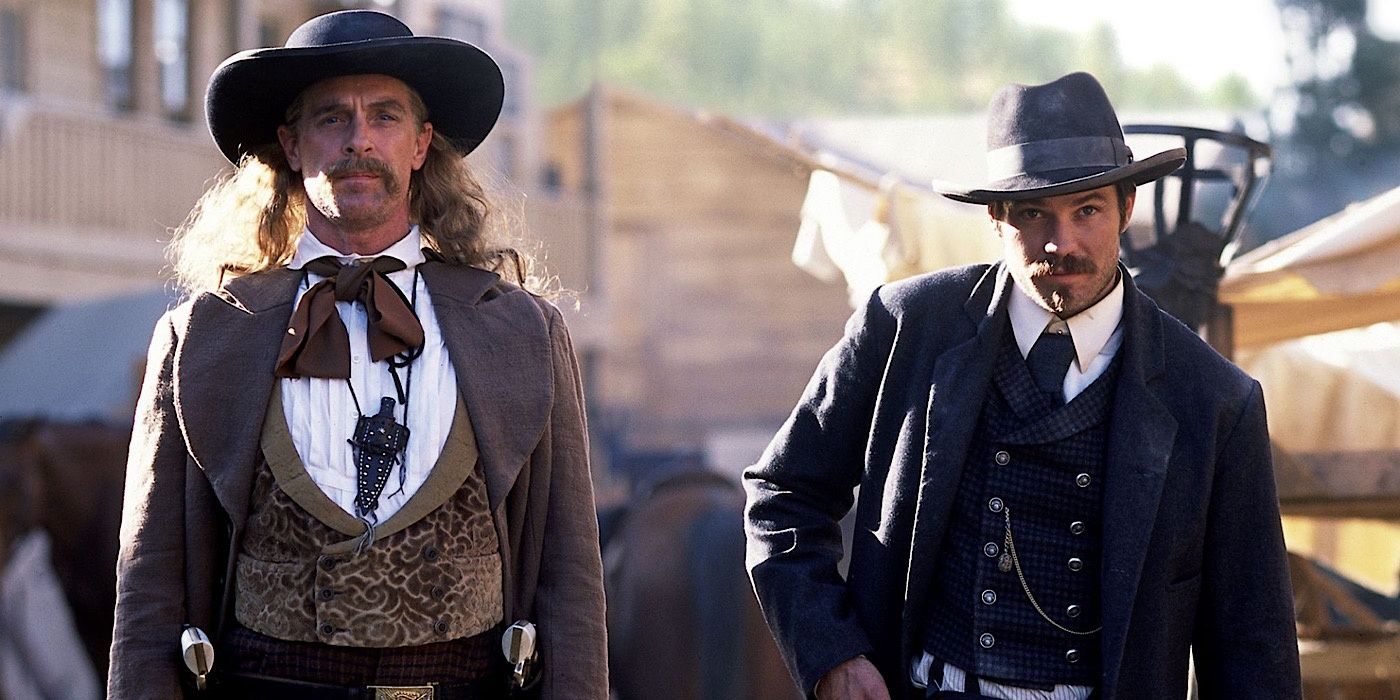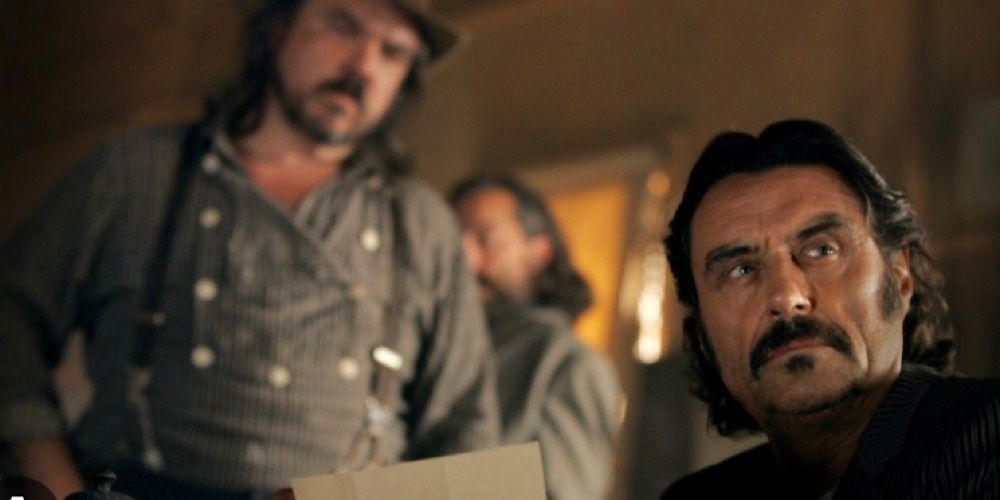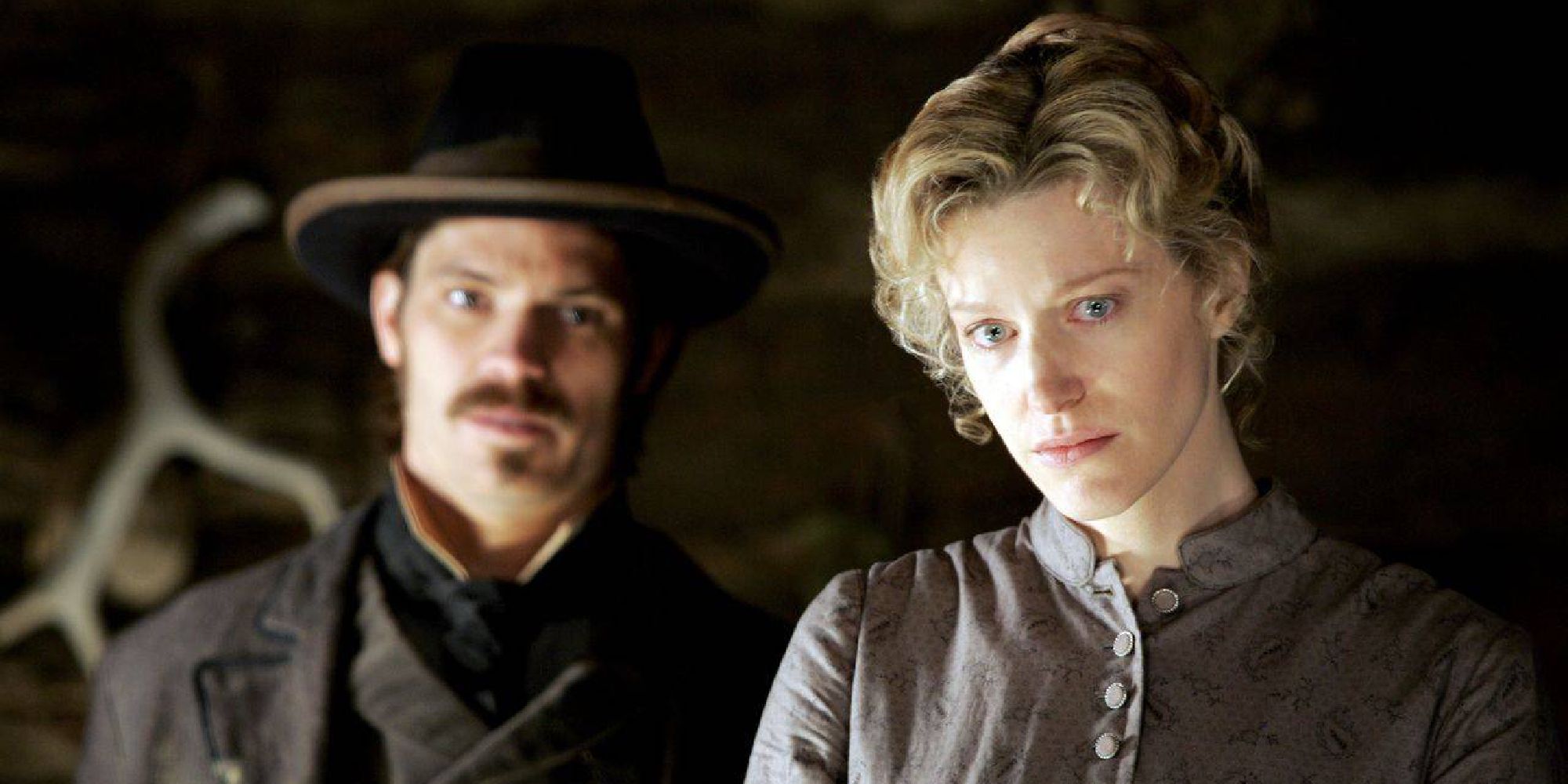With acclaimed TV shows like The Sopranos, The Wire, and True Detective, HBO has a reputation for delivering consistently high-quality crime/drama TV shows set (predominantly) in the modern day. However, as a network, HBO has proven to be similarly dependable at producing impressive historical dramas, with large budgets and seriously massive star power that ensure such shows have a remarkable cinematic quality to them. Perhaps the best-known of these historical dramas would be Rome, which ran for two seasons (2005-2007) and was set during the 1st century BC, depicting various historical events with fictionalized versions of real-life people, aiming to show the beginning of the Roman Empire. There’s also Boardwalk Empire, with a cast of characters — some fictional, and some based on real-life historical figures — who populate Atlantic City during the Prohibition era. Then there’s also Carnivàle, which had fictional characters and fantastical elements, but was explicitly set during a real period in history: the Great Depression. Yet of HBO’s various historical dramas, none are quite as great as Deadwood, which aired between 2004 and 2006, running for three seasons, plus a movie serving as a grand finale released in 2019.
Though it was regrettably canceled after its third season, Deadwood stands as an ambitious blend of genres that still feels unique to this day, with it being a character drama, a crime series with a historical setting, and an updated take on traditional Western tropes — all the while being incredibly funny at times. It follows a group of characters mostly comprised of real-life people who once lived in the town of Deadwood, South Dakota, a real-life location that thrived during the 1870s thanks to its proximity to the Black Hills Gold Rush. The show doesn’t get too bogged down in historical details, following the basics of history — or at least what’s known — while also branching off and taking engaging creative liberties. That it strikes such an expert balance between history and fiction while also having some of the best writing in TV history and a phenomenal ensemble cast of characters (all expertly portrayed by the show’s actors) makes it one of the best shows to ever air on HBO, and also the network’s greatest historical drama.
How ‘Deadwood’ Works as a (Mostly) Historical Show
Tackling a historical narrative in film or TV is always going to be tricky to pull off, as can be demonstrated by the various biographical movies released over the years that misrepresent the truth and/or sugar coat it, with the worst-case scenario being something that feels both watered down and boring. Such historical narratives — whether focused on a single person, a larger event, or an entire town, as is the case with Deadwood — need to balance having some level of honesty and a suitable amount of (acceptable) breaks from reality. What those breaks from reality are allowed to be can ultimately depend on the subject being approached, and there’s unfortunately no hard and fast rule here. Some historical films or shows may be able to get away with a ton when it comes to ignoring the truth, especially if the story is lightweight, happened a long time ago, or is merely inspired by true events, rather than seeking to retell them. Sometimes this approach is better, because real life can honestly be a pretty poor substitute for a good story, so some fabrication may be necessary to keep an audience’s attention.
With Deadwood, there is a level of historical accuracy and plenty of events that aim to be depicted as accurately as possible, but the show was unafraid to branch out when it needed to, all the while staying true to the fantastically written characters. Even if there are things certain people do here that they might not have done in real life, it all feels believable and grounded within the show itself. This is perhaps more important than being 100% historically accurate. If it feels true, and doesn’t misrepresent what is known about these people, and these people aren’t exactly alive to dispute anything in any event (sorry — just a harsh fact of life), then aiming for complete accuracy is a fool’s errand. Prior to the less historically accurate (though thankfully emotionally satisfying) ending, the best way to get closure for the canceled show was to look up facts regarding the people who appeared in the show and get a brief overview of how they lived their lives before learning how they passed away (making it like a text-only version of Six Feet Under’s iconic finale). That one can picture these characters doing things even without a conclusive fourth season speaks to the more than adequate level of historical accuracy found in the show, and for what it’s worth, the show has been praised for its historical accuracy by people who know Deadwood’s history.
Few Shows Are as Well Written as ‘Deadwood’
Part of that historical accuracy clearly shines through in the writing, as its production included extensive research done by the show’s creator, David Milch, and the other people who worked on it behind the scenes. Beyond representing certain buildings as they once looked and attempting to work in dynamics between characters that would’ve likely reflected the bonds (or rivalries) between their real-life counterparts, that research also led to the show being famously profane with its dialogue. It seems almost too good to be true that one of the most foul-mouthed characters on the show is a man named Al Swearengen (played by a phenomenal Ian McShane in one of TV’s best-ever performances), but that was the man’s name, and he was a powerful figure within the town. Given research suggested that most Deadwood citizens back then apparently swore like sailors (despite not being near any oceans) — it just so happens to be that Swearengen gets to be remembered to this day as a powerful “swear engine.”
The profanity-filled dialogue is so creative and dynamic that Deadwood would still be compelling television if it were quite literally just three seasons of people swearing at and insulting each other (Succession feels like this often, and it’s great), but the show’s much more than just that. It consistently finds compelling things for characters to do, and mines drama out of having people enter into uneasy alliances, compromise their principles, or clash violently with others in the town who might have interests that differ from theirs. There are plot-heavy stretches of episodes, like how Wild Bill Hickok (Keith Carradine) takes center-stage after shaking up Deadwood during the first half of Season 1, and then a similar thing happens with darker results by Season 3, where a true antagonist, George Hearst (Gerald McRaney), emerges to try and take over the town for his own selfish means. But often, it’s the character drama that remains the most compelling element of the show, keeping things interesting even if the ongoing plot threads seem to take an occasional break from the spotlight. The writing is good enough to ensure anything these people do feels compelling, with the characters only feeling more well-realized thanks to the performances and the sense of historical accuracy.
‘Deadwood’ Has One of the Best Ensemble Casts in HBO History
Strong writing and solid attention to detail were needed to bring a massive cast to life for the show, given how many famous (or even semi-famous) figures from the town’s real history are featured as prominent characters throughout Deadwood. It’s also ambitious in the way that it continually increases the size of the cast as it goes along, with each season jumping forward in time, naturally allowing new people to come into town and challenge the pre-existing dynamics and/or power structures already established there. If anything, this may be one thing Deadwood did which didn’t pay off completely, given that there were a large but manageable number of characters in Season 1, noticeably more in Season 2 but not too much, but then the titular town featured a few too many prominent people in the third and final season. The size of the cast may have been overwhelming for some viewers, or the continual building could have been a reason for its cancelation. Even if there were many people to keep track of at some points, it can’t be denied that the characters remained well-written and well-acted; there were just a high number of compelling characters to keep track of.
In that way, it was like many other great HBO shows: it didn’t feel the need to hold a viewer’s hand, and so falling behind was always something that could happen. And it makes rewatching the show a delight, because once you have a sense of the town and the people within it, everything becomes easier to follow, and all the characters become more distinct from the others. The rewatch factor could have helped give the show a second life of sorts, because it clearly stuck around in the public consciousness enough for there to be a demand for a movie to wrap things up, and for fans, that did thankfully come in 2019. While the show could be called a historical drama in some sense, the movie wasn’t, because it simply had too much ground to cover while also delivering something powerful enough to feel like an ending, and so it broke from history in several areas. Still, Deadwood was never about being completely factual. The historical aspect of the show gave it a certain tangibility and believability, and also served to pique the interests of viewers. Such viewers may come for the history, but they’ll stay for the acting, strong writing, excellent characters, and sure, even the profanity, with all these various aspects combining to make Deadwood one of the best TV Westerns in the 21st century, and one of HBO’s best about history, in history.
Stay connected with us on social media platform for instant update click here to join our Twitter, & Facebook
We are now on Telegram. Click here to join our channel (@TechiUpdate) and stay updated with the latest Technology headlines.
For all the latest TV News Click Here



